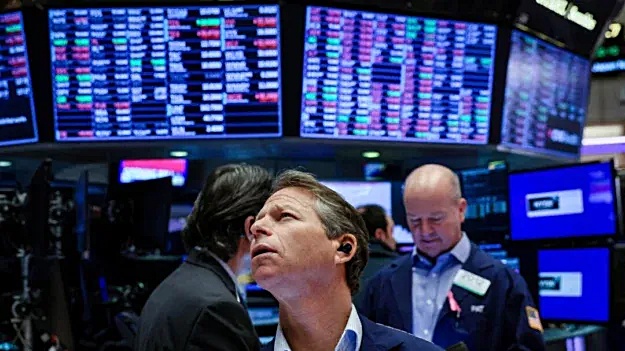The Wall Street fear gauge, known as the CBOE Volatility Index (VIX), has surged to its highest level since both the Lehman Brothers collapse and the COVID-19 pandemic. This spike in volatility comes as global stocks and Wall Street’s main indexes experienced a significant decline on August 5th, driven by economic concerns following last week’s disappointing U.S. jobs report. The VIX, which tracks the 30-day implied volatility of the S&P 500 Index, serves as an indicator of investor fear and traded around the 40 mark at the time of reporting, after an initial surge on Monday morning.
According to several market analysts and experts, this episode of high trading volatility should be seen as an unwind, characterized by margin calls, leverage reduction, and widespread selling. They suggest that such a selloff, driven by technical factors, is more preferable than a decline fueled by poor earnings and stock market multiple adjustments. Nevertheless, caution remains as this week sees the release of high-profile earnings reports from companies like Disney and Uber, which could surprise markets and contribute to ongoing instability.
Prior to the recent surge in volatility, concerns about future corporate earnings and economic growth had already caused the fear gauge to rise in the past weeks. The disappointing jobs report on August 2nd triggered another significant jump in the VIX, pushing it to a 15-month high of nearly 30 before settling around 23. The report revealed that the U.S. economy added only 114,000 new jobs in July, a significant slowdown compared to June’s figure of 179,000 and falling short of economists’ expectations of 175,000. The unemployment rate also rose from 4.1 percent to 4.3 percent, marking its highest level since October 2021 and indicating a deceleration in the labor market.
Amidst growing concerns, Austan Goolsbee, President of the Federal Reserve Bank of Chicago, assured that the Fed is ready to take action if the economy shows signs of a downturn. However, Goolsbee believes that market reactions to the jobs report have been exaggerated and that, overall, the economy has maintained its strength, driven by robust consumer spending. He argues that the current labor market weakness has not yet reached recessionary levels.
Discover more from Tension News
Subscribe to get the latest posts sent to your email.

